Manufacturing
Industrial operations ask for reliable, high-performance conveyance systems, and at Anaconda Pipe & Hose, our solutions are designed to keep your manufacturing lines moving with minimal downtime. From heavy-duty HDPE piping to rugged slurry hoses and space-saving lay flat options, we empower manufacturers with sturdy infrastructures designed for durability and efficiency.
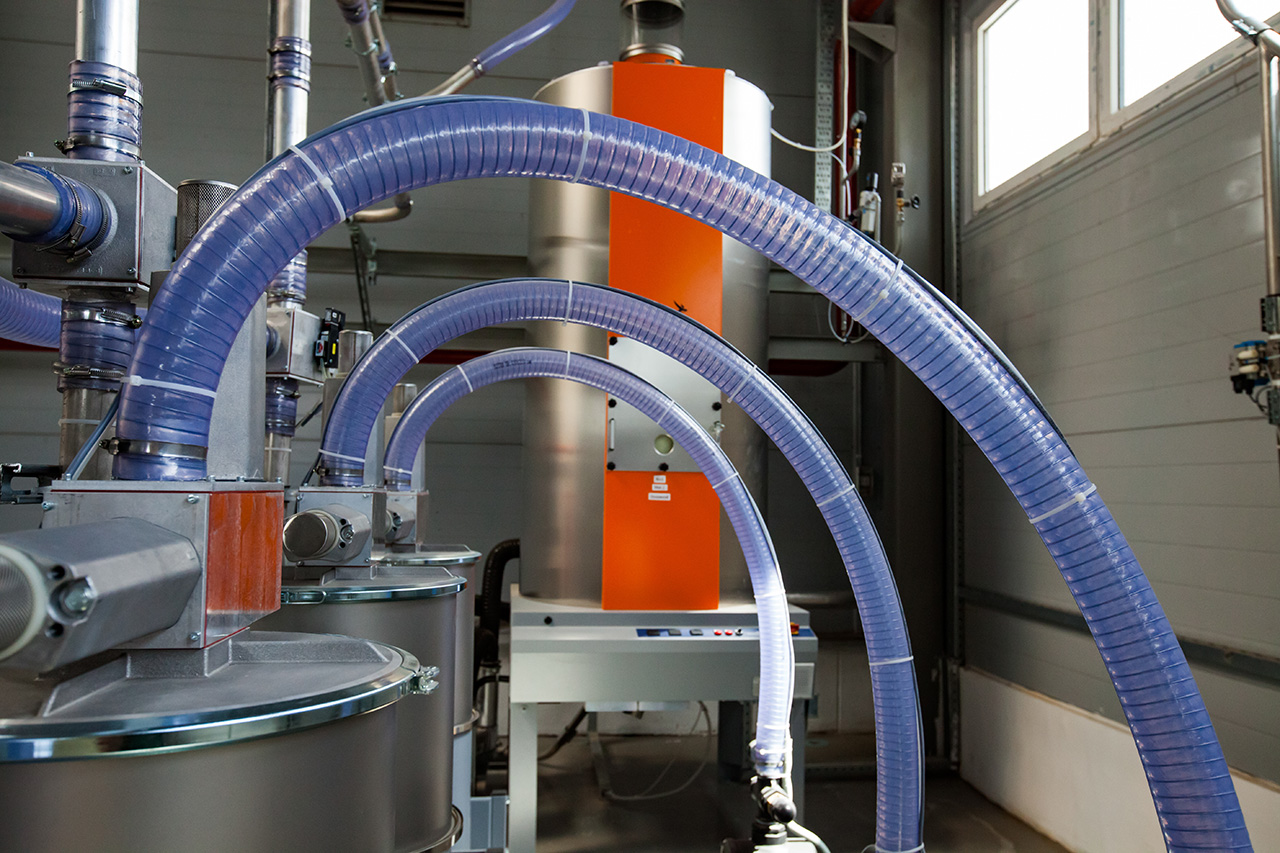
Home
Industries
Manufacturing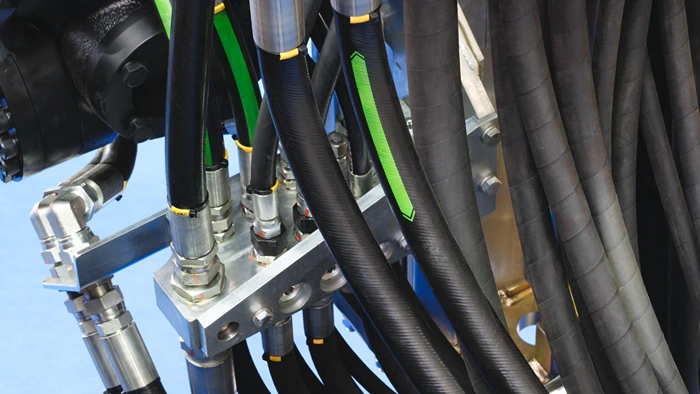
Integrated Pipe and Hose Solutions for Manufacturing Operations
Manufacturing operations rely on the consistent, efficient, and safe movement of fluids and materials across various stages of production. From cooling systems and process water management to slurry transport and waste discharge, every facility requires a durable and well-engineered conveyance infrastructure.
Anaconda Pipe & Hose provides end-to-end solutions designed specifically for the demands of industrial manufacturing. Our HDPE Pipes, Industrial Slurry Hoses, and Layflat Hoses are engineered to handle high pressures, temperature variations, and abrasive or corrosive media with reliability and precision.
Each product line is developed to address a different operational need: HDPE for fixed fluid networks, slurry hoses for abrasive or high-solid transfers, and layflat hoses for portable or temporary setups. Together, these solutions help manufacturers reduce downtime, improve system performance, and minimize maintenance costs.
With strong material integrity, proven pressure ratings, and application-specific configurations, Anaconda products ensure long-term performance and compliance with industrial standards. Whether the requirement involves continuous fluid circulation or intermittent discharge, our systems are designed to maintain process efficiency and plant productivity.

Products Built for Industry
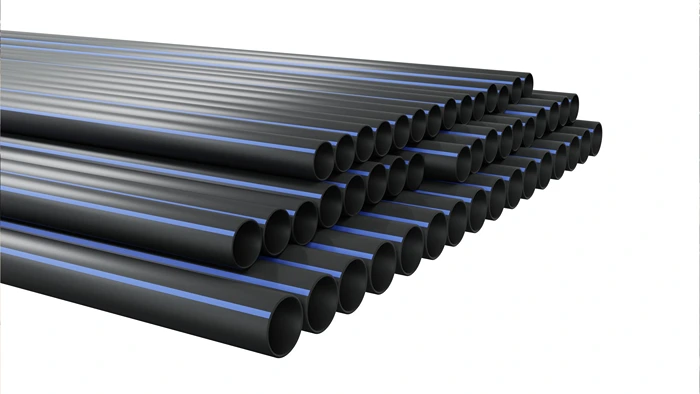
High-Performance HDPE Pipe
Our industrial-grade HDPE pipe is engineered for the rigorous demands of manufacturing and processing applications. With smooth interior walls, it delivers efficient fluid transfer, reducing friction loss and ensuring stable flow through production systems. Built to handle high pressures and varying temperatures, it brings pressure handling, temperature tolerance, and corrosion resistance to your fluid systems. Whether you’re transporting coolants, chemicals, or process fluids, the precision-dimensioned pipe ensures seamless integration with existing equipment and tooling, reducing leaks and installation time.
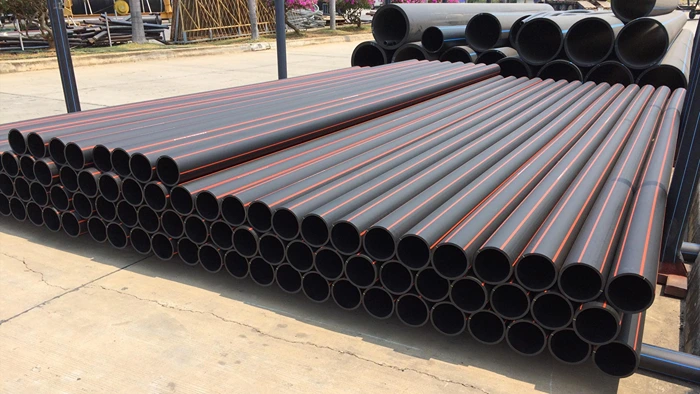
Key advantages for manufacturing:
- Smooth bore and precision sizing: minimizes downtime and maintenance.
- Strong pressure and temperature ratings: supports hydraulic or cooling systems.
- Corrosion-resistant HDPE construction: ideal for harsh environments.
- Customizable lengths and fittings: fit your production layout exactly.
When you need a piping system that is the backbone for your project that works as hard as your machines, this HDPE solution is optimized for industrial performance.

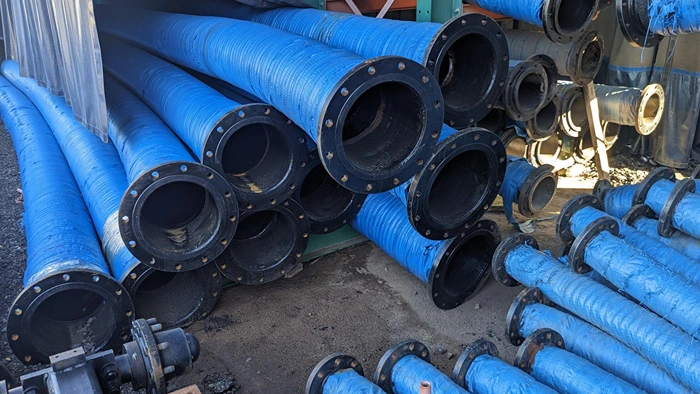
Industrial Slurry & Discharge Hose
Manufacturing facilities often require the transfer of viscous fluids, slurries, or high-abrasion materials. Our industrial slurry hose is crafted precisely for those requirements. With abrasion-resistant lining, vacuum resistance, and flexibility for complex layouts, it ensures material handling systems stay up and running.
- High abrasion/erosion resistance: ideal when moving solids, grits, or particles.
- Vacuum and suction capability: handles raw material intake or by-product removal reliably.
- Flexible deployment: adapts to dynamic manufacturing layouts, reducing installation complexity.
For manufacturing lines that deal with tough and challenging materials or need solid discharge systems, this hose delivers the credibility and performance you require.

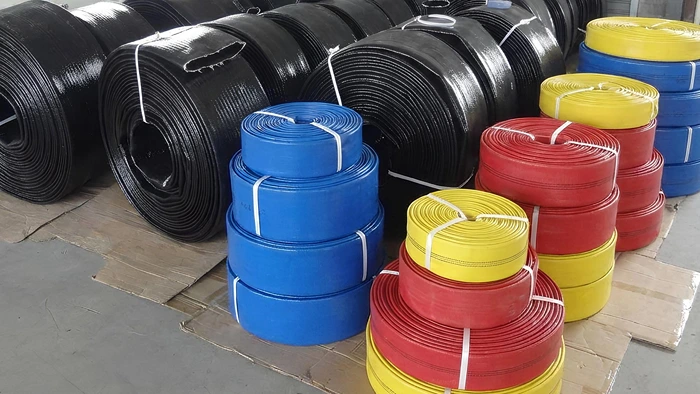
Lay flat hose manufacturing for Compact & Agile Applications
When space is at a premium or hose deployment/retrieval must be fast and efficient, our lay flat hose offers a clear solution. Designed for portability and quick handling, it supports manufacturing operations where fluid transfer lines must be repositioned or stored compactly.
Manufacturers appreciate the following benefits:
- Flat-profile storage: frees up floor space when the hose is not in use.
- Quick deployment/retrieval: shortens lead time when operations shift or mobile units are used
- Chemical resistance and pressure capability: supports diverse fluid systems in manufacturing.
Whether you’re transferring cooling fluids, rinse water, or other utilities where flexibility and space-efficiency are the main focus, our lay flat hose integrates smoothly into modern manufacturing infrastructure.

Speak With Technical Team
Get in touch with Anaconda Pipe & Hose for industry-ready pipe and hose solutions.
Manufacturing Pipe and Hose Solutions
Product Comparison
Feature / Specification | HDPE Pipe | Industrial Slurry Hose | Lay Flat Hose |
|---|---|---|---|
Product Description | Industrial-grade HDPE piping with Bauer fittings, available in DR11 and DR17 thickness grades. | Heavy-duty discharge and suction hose for abrasive slurries and materials. | Flexible “lay flat” discharge/transfer hose (multiple variants: water-duty, heavy duty, industrial) for mobile or space-sensitive applications. |
Material & Construction Highlights | Smooth bore HDPE, corrosion-resistant, precision dimensions, supports quick connect/disconnect via Bauer couplings. | Inner lining and reinforcement are designed for abrasion resistance, vacuum capability, and suction/discharge of slurries. | Flat-profile construction, materials include TPU, PVC, nitrile blends; reinforced designs for higher pressure versions. |
Typical Use Conditions | Fluid transport, process piping, chemical, and manufacturing environments where corrosion, pressure, and temperature variation are present. | High-abrasion media, slurries, suction/discharge lines in dredging/mining/industrial settings. | Temporary or mobile fluid transfer (water, chemicals, dewatering), where the hose might be rolled up/stored, or layout changes frequently. |
Suitable Manufacturing Industry Applications | Process fluid lines (coolants, chemicals), chemical plants, or manufacturing with fluid transfer requirements. | Transfer of abrasive by-products, slurries, and solids in manufacturing or material-handling processes. | Flexible fluid transfer where mobility, space-saving, or temporary layout is required (fill/flush lines, mobile skid units, flexible discharge). |
Need help selecting the right pipe or hose for your manufacturing system? Speak with our technical team for a custom product recommendation.
Case study
Streamlining Manufacturing Operations with Anaconda Pipe & Hose Solutions
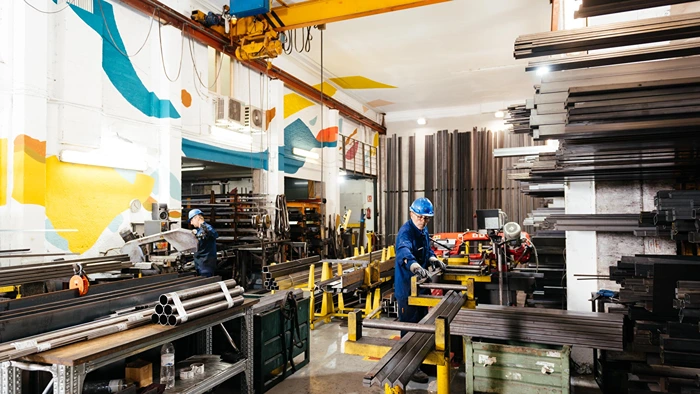
Client Overview
A mid-sized industrial manufacturer specializing in metal and component fabrication was struggling with outdated fluid transfer systems. Their operations faced frequent corrosion, leakage, and abrasion failures due to aging metal pipelines and low-durability hoses, leading to recurring downtime and escalating maintenance costs.
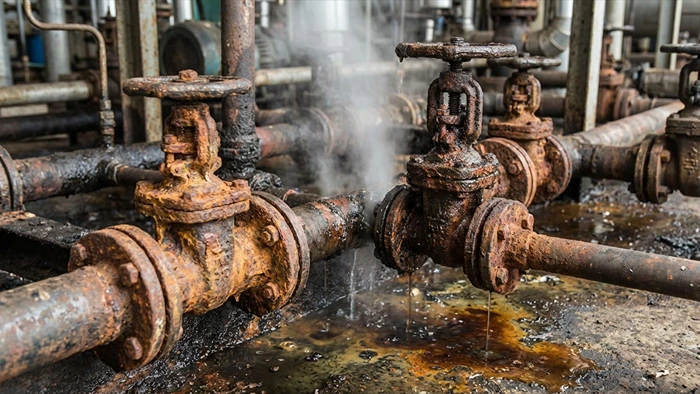
Challenge
- Corrosion and leakage in metallic coolant lines.
- Frequent hose failures in slurry handling systems.
- Rigid pipeline layouts limit operational flexibility.
- Rising maintenance costs and unplanned production halts.

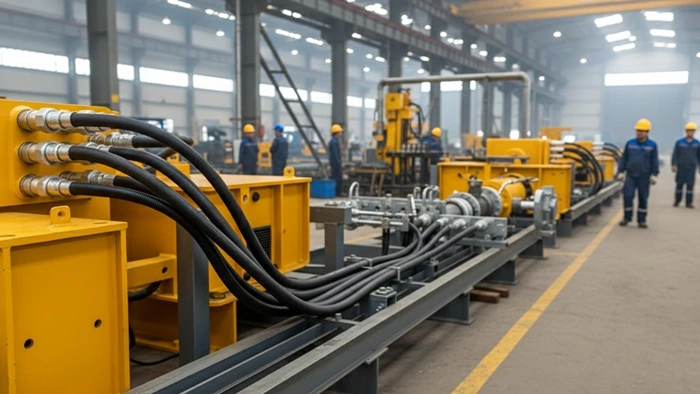
Solution
Anaconda Pipe & Hose designed an overarching fluid conveyance upgrade by integrating:
- HDPE Pipe: Replaced corroded metal pipes in coolant lines. The smooth bore improved fluid flow, while chemical and corrosion resistance ensured durability.
- Industrial Slurry Hose: Installed in grinding and finishing units. Its abrasion-resistant liner and vacuum capability handled high-solids slurries efficiently.
- Layflat Hose: Introduced for mobile and temporary operations. The flexible, space-saving design allowed quick deployment and easy storage.
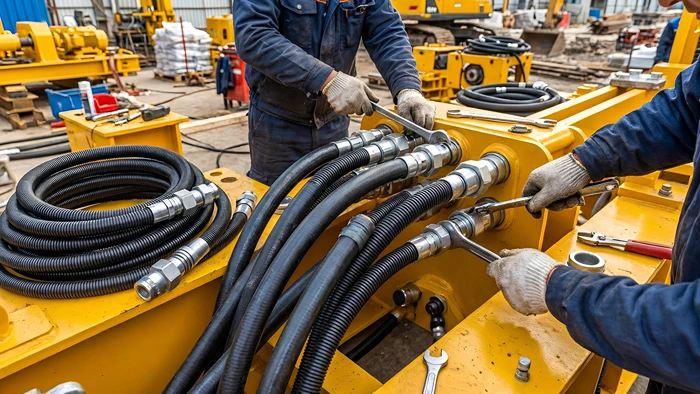
Implementation
The transition was executed in phases to avoid downtime. Custom HDPE lengths, pressure-tested hose fittings, and on-site support ensured seamless integration into existing systems.

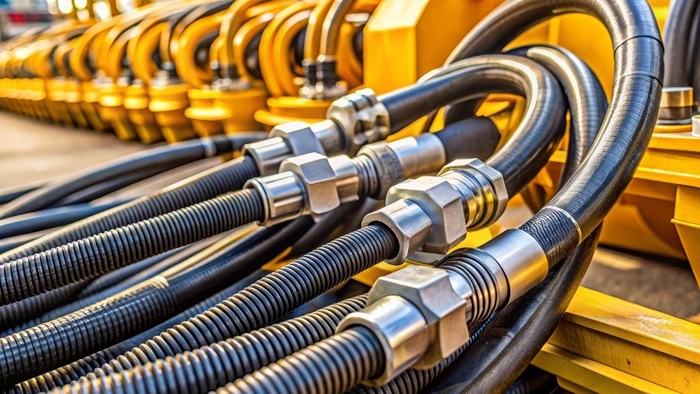
Results
- 48% reduction in maintenance and replacement costs.
- 18% improvement in flow efficiency.
- Zero unplanned downtime linked to fluid systems.
- Enhanced layout flexibility for production expansion.
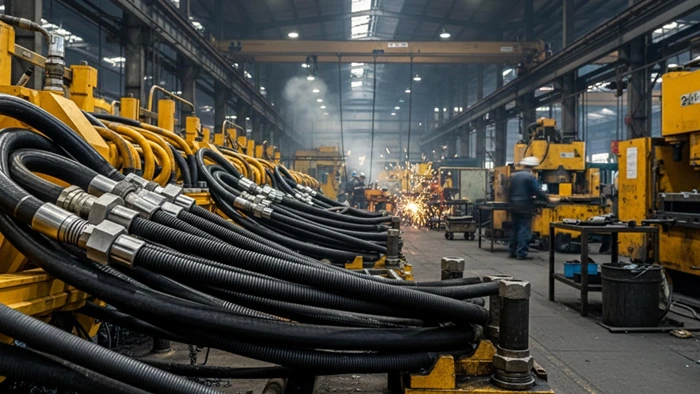
Outcome
The integrated Anaconda system delivered greater reliability, operational efficiency, and long-term cost savings. By combining HDPE pipes, slurry hoses, and layflat hoses, the manufacturer achieved a durable, adaptable infrastructure optimized for modern manufacturing demands.

Frequently Asked Questions
How do Anaconda’s products support manufacturing operations?
Anaconda’s HDPE Pipes, Slurry Hoses, and Layflat Hoses are designed for efficient transport of fluids, slurries, and chemicals used in production processes. Their durability, corrosion resistance, and pressure-handling capabilities reduce maintenance downtime and support continuous manufacturing operations.
What are the key advantages of using HDPE Pipes in manufacturing facilities?
HDPE Pipes provide leak-free, corrosion-resistant fluid transfer for process water, coolants, and chemicals. They offer excellent pressure and temperature performance, ensuring long-term reliability compared to conventional metal or PVC pipelines.
Can slurry hoses handle abrasive materials used in industrial production?
Yes. Industrial Slurry Hoses are built with abrasion-resistant liners and reinforced construction to handle abrasive materials, slurries, and by-products from grinding or processing operations without premature wear or rupture.
When should manufacturers use Layflat Hoses instead of fixed piping?
Layflat Hoses are best suited for applications requiring mobility, quick deployment, or temporary connections, such as cleaning, drainage, or auxiliary fluid transfer. They provide flexibility without occupying permanent floor space.
Are Anaconda’s products compatible with existing plant systems?
Yes. All Anaconda products are available in standard industrial sizes and can be configured with compatible fittings and couplings (including Bauer fittings) to integrate seamlessly with existing infrastructure.
How do these products perform in high-temperature or chemical environments?
Anaconda’s HDPE and Layflat Hoses are engineered to handle a wide temperature range and chemical exposure common in industrial processes. The materials resist corrosion, scaling, and degradation from harsh fluids and temperature fluctuations.
What kind of maintenance do these hose and pipe systems require?
Routine inspections for pressure, fittings, and surface wear are sufficient. The materials’ non-corrosive and abrasion-resistant properties significantly reduce the frequency and cost of maintenance compared to traditional systems.
Can Anaconda customize hose or pipe specifications for unique manufacturing applications?
Yes. Anaconda offers custom lengths, diameters, and connection options to suit facility layouts, process requirements, and flow conditions. Technical teams provide engineering support to ensure compatibility and system efficiency.
What is the expected service life of these products in manufacturing conditions?
When used under recommended conditions, HDPE Pipes and Industrial Slurry Hoses can deliver service lives exceeding many years, while Layflat Hoses offer long-term performance when properly handled and stored.
How can manufacturers determine which product best fits their operation?
Manufacturers can contact Anaconda’s technical support team for a site or process assessment. Based on flow type, pressure, material, and system layout, our engineers recommend the most suitable combination of HDPE, Slurry, or Layflat solutions to meet operational goals.
Contact Anaconda Pipe & Hose
Speak with our experts to define the right solution for your project. Our team supports you from initial planning through execution.

